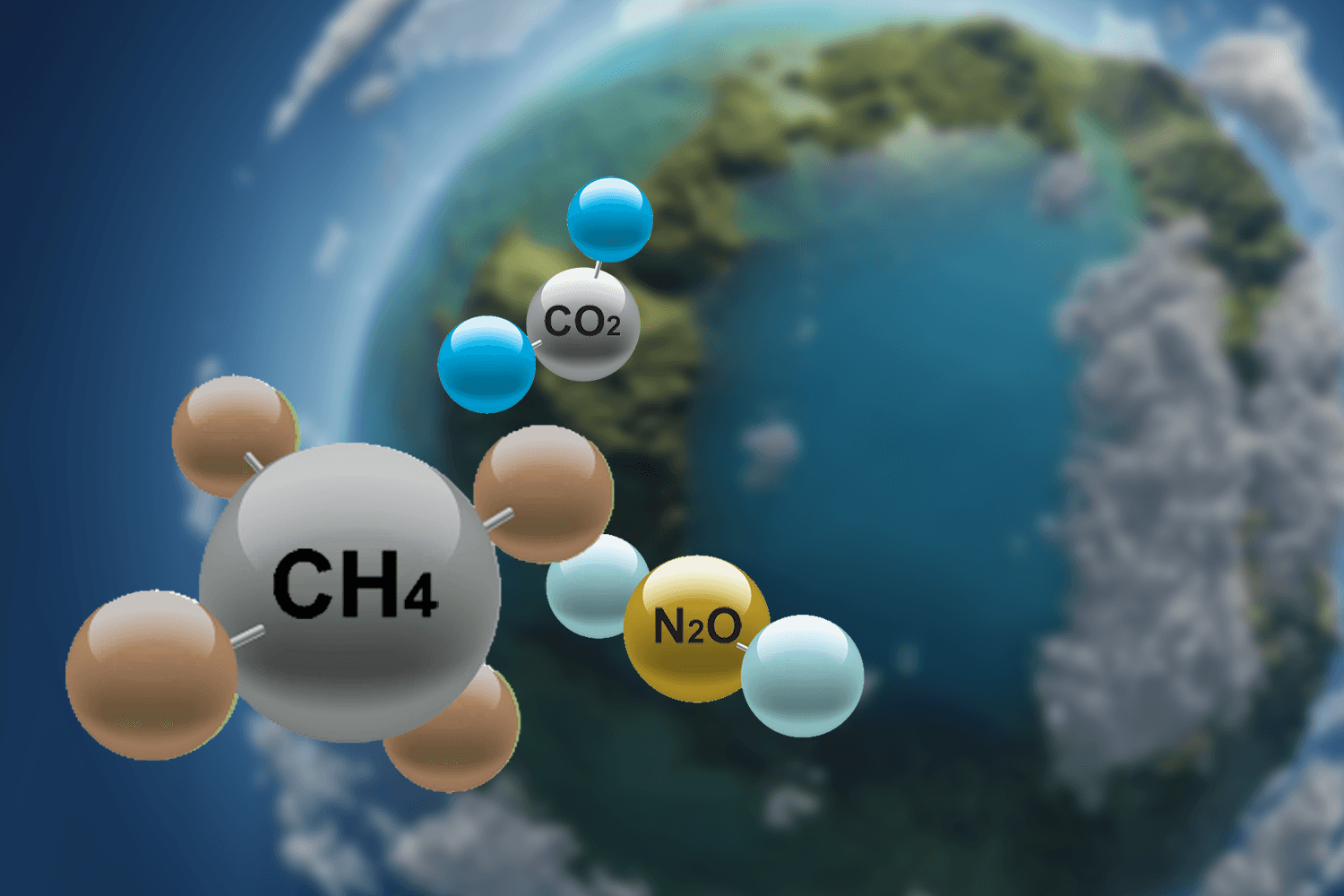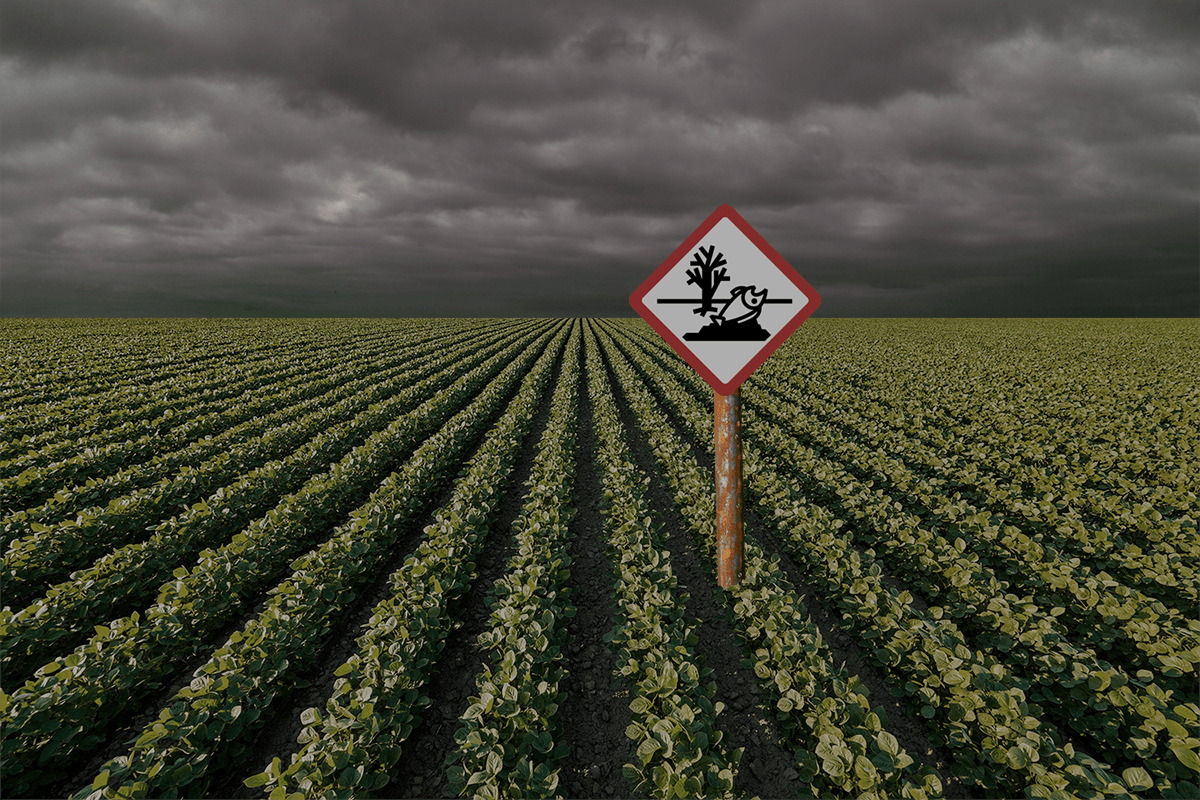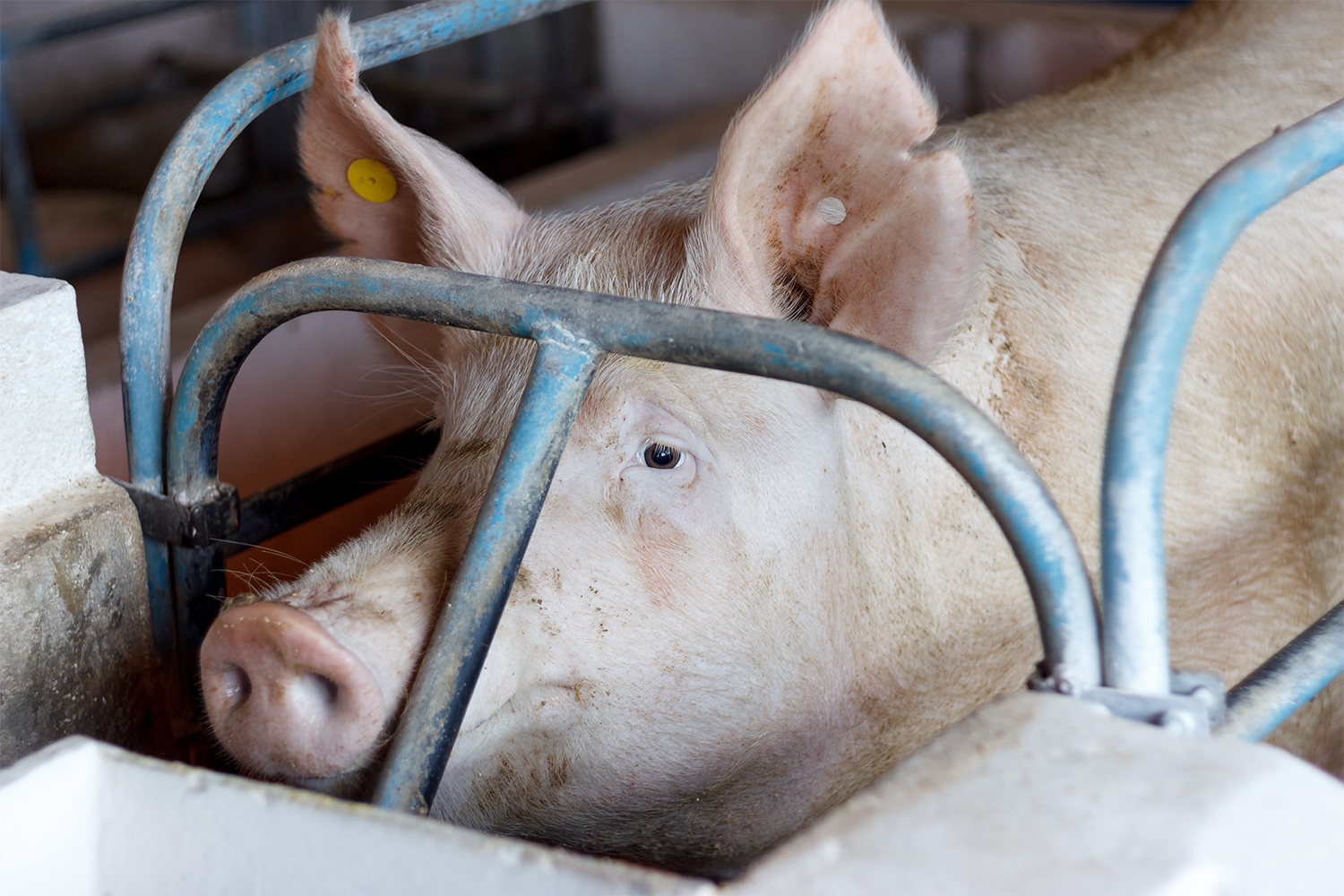Modern farming has become the stuff of nightmares.
Rapacious practices have made modern agriculture one of the gravest threats to our world.
The livestock industry has a colossal impact on the environment. It emits about 15% of all greenhouse gases, uses more than 80% of all farmland, which is about 30% of all land, causes widespread destruction of rain forests, degrades the soil through overgrazing, consumes massive quantities of energy, depletes fresh water resources and causes severe pollution through animal waste filled with chemicals.
Intensive crop farming kills all forms of life bar the few monocrops that are grown, degrades the soil, depletes fresh water resources and causes severe pollution as a result of the chemicals used as pesticides and fertilizers.
Both are unsustainable dead-ends and should be phased out for that reason alone.
The extreme harm that modern agriculture does to the environment is undeniable, and yet it receives much less attention than other causes of environmental ruin.
This is largely caused by the all too familiar tactics of big business to deceive the public, in this case the huge and influential agribusinesses and agrochemical corporations that dominate the food industry. Their main, and deeply flawed, narrative is that intensive farming is necessary to prevent humanity from starving.
This is simply not true.
The Food and Agricultural Organization of the UN has calculated that if food for humans was produced and distributed efficiently it would be possible to feed twice the number of people on earth.
The production of food is not the problem, its mismanagement is.
First and foremost one third of all food produced is wasted. ONE THIRD! Even a partial solution of that single problem would easily eliminate any fear of world hunger.
Secondly, most agricultural resources are devoted to livestock, which is a very inefficient way to produce food for people. The subject is complicated, with many varying numbers, depending on the sources and methods of calculation, but it is crystal clear that the production of one kilo of meat requires several kilos of animal feed and therefore
reduces the quantity of food available to humans, because most of the croplands used for animal feed could also be used for human food.
Thirdly, by far the most food for humans is produced by small farmers, and they have been under attack from big business for decades. Small farms have been disappearing all over the world, while it is becoming increasingly clear that large farms are not as productive as smaller ones and are certainly much more harmful to the environment. A slight improvement in the circumstances of smaller farmers, especially in poorer countries, by protecting their rights and providing them with better tools and education to improve their efficiency within sustainable limits, would do more for global food security than all the chemicals in the world. Instead, the big corporations make sure (through their usual machinations) that any subsidies are given to them.
Fourthly, excessive consumption of meat and dairy products is unhealthy. Health authorities have concluded that about 80 grams of meat a day make for a healthy diet. In countries like Australia and the USA people consume many times more than that. It is no coincidence that the increase of obesity and other health problems coincides with the increase of meat consumption.
And last but certainly not least, there is the issue of animal cruelty. It is no exaggeration to say that never in the brutal history of humanity have so many animals been treated so badly as they are today. It is a bloody disgrace and should not be tolerated in any society claiming to be civilized.
The worst cruelty is committed against pigs and poultry.
This sow, for instance, is condemned to spend large parts of her life in an iron cage in which she can barely move, only lie down or stand up. She won't see daylight or breathe fresh air. She cannot socialize with others, not even her own offspring. Her lack of movement will cause her all kinds of intense suffering, both physically and mentally.
Her fate may not seem as bad as other, more spectacular forms of animal abuse, but - bearing in mind that pigs are as sensitive, affectionate, playful and intelligent as cats or dogs - pet owners need only imagine the misery of their own companions in such a state to realize that this is pure torture.
This is no small thing. Animal cruelty is a serious crime, increasingly recognized by criminologists as a warning sign for violent crimes directed at humans. FBI research indicates that most serial killers, school shooters, and mass murderers tortured animals as children. The US Department of Justice has even published a book on the subject to enable "
law enforcement agencies to recognize that animal cruelty crimes can serve as precursors to more violent crimes, as a co-occurring crime to other types of offenses, and as an interrelated crime to other offenses such as domestic violence and elder abuse".
A link to a pdf version of the book can be found at the bottom of this page.
It will be clear that little good can ever be expected from people of this calibre.
"The basic strategy to replace human labour with farm machinery, agrochemicals and fossil energy, is a dead end in times of climate change, dwindling oil reserves and overexploited natural resources."
IAASTD website of UN on global agriculture
"A man can live and be healthy without killing animals for food; therefore, if he eats meat, he participates in taking animal life merely for the sake of his appetite."
Leo Tolstoy
"Whether you eat meat or not, you can be part of this decision to limit the meat industry destroying our planet's resources."
Stella McCartney
"The planet is not dying. It is being killed. And those killing it have names and addresses"
Utah Philips



